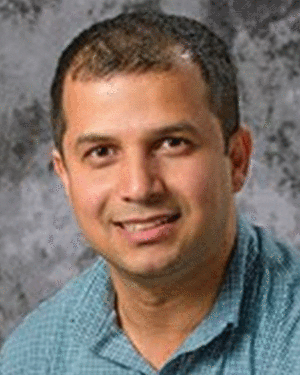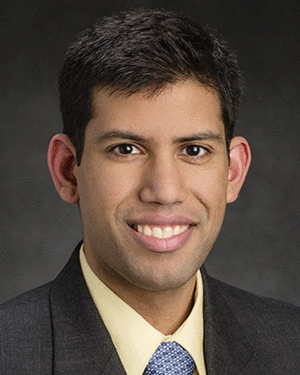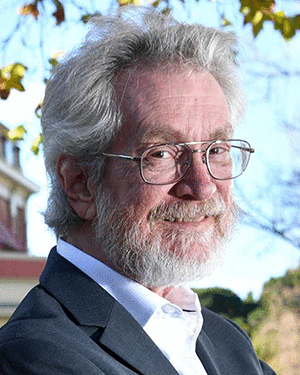Abstract:
Motivated by collaboration in human and human-robot groups, we consider designing lossy source codes for agents in networks that are in different statistical environments...Show MoreMetadata
Abstract:
Motivated by collaboration in human and human-robot groups, we consider designing lossy source codes for agents in networks that are in different statistical environments but also must communicate with one another along network connections. This yields a strategic network quantizer design problem where agents must balance fidelity in representing their local source distributions against their ability to successfully communicate with other connected agents. Using network game theory, we show existence of Bayes Nash equilibrium quantizers. For any agent, under Bayes Nash equilibrium, we prove that the word representing a given partition region is the conditional expectation of the mixture of local and social source probability distributions within the region. Since having knowledge of the original source of information in the network may not be realistic, we further prove that under certain conditions, the agents need not know the source origin and yet still settle on a Bayes Nash equilibrium using only the observed sources. Further, we prove the network may converge to equilibrium through a distributed version of the Lloyd-Max algorithm, rather than centralized design. In contrast to traditional results in language evolution, we demonstrate several vocabularies may coexist in Bayes Nash equilibrium, with each individual having exactly one of these vocabularies. The overlap between vocabularies is high for individuals that communicate frequently and have similar local sources. Finally, we prove that error in translation along a chain of communication does not grow if and only if the chain consists of agents with shared vocabulary. Numerical examples demonstrate our findings.
Published in: IEEE Transactions on Signal Processing ( Volume: 69)
Funding Agency:

Department of Industrial and Systems Engineering, University of Minnesota, Minneapolis, MN, USA
Ankur Mani received the B.Tech. degree in electrical engineering from the Indian Institute of Technology, Delhi, New Delhi, India, the M.S. degree in electrical engineering from Arizona State University, Tempe, AZ, USA, and the Ph.D. degree from the Massachusetts Institute of Technology, Cambridge, MA, USA, in 2014. His doctoral dissertation was supported by several awards, including the Yahoo Key Scientific Challenges an...Show More
Ankur Mani received the B.Tech. degree in electrical engineering from the Indian Institute of Technology, Delhi, New Delhi, India, the M.S. degree in electrical engineering from Arizona State University, Tempe, AZ, USA, and the Ph.D. degree from the Massachusetts Institute of Technology, Cambridge, MA, USA, in 2014. His doctoral dissertation was supported by several awards, including the Yahoo Key Scientific Challenges an...View more

Coordinated Science Laboratory and the Department of Electrical and Computer Engineering, University of Illinois at Urbana-Champaign, Urbana, IL, USA
Lav R. Varshney (Senior Member, IEEE) received the B.S. degree (magna cum laude) in electrical and computer engineering (with honors) from Cornell University, Ithaca, NY, USA, in 2004, and the S.M., E.E., and Ph.D. degrees in electrical engineering and computer science from the Massachusetts Institute of Technology, Cambridge, MA, USA, in 2006, 2008, and 2010, respectively, where his theses were the recipient of the E. A....Show More
Lav R. Varshney (Senior Member, IEEE) received the B.S. degree (magna cum laude) in electrical and computer engineering (with honors) from Cornell University, Ithaca, NY, USA, in 2004, and the S.M., E.E., and Ph.D. degrees in electrical engineering and computer science from the Massachusetts Institute of Technology, Cambridge, MA, USA, in 2006, 2008, and 2010, respectively, where his theses were the recipient of the E. A....View more

Media Laboratory, Massachusetts Institute of Technology, Cambridge, MA, USA
Alex Pentlandreceived the bachelor's degree from the University of Michigan and the Ph.D. degree from the Massachusetts Institute of Technology (MIT) in 1982. He is currently the Toshiba Professor of Media Arts and Science at the MIT. He was the co-creator of the MIT Media Lab and the founder of the the MIT Connection Science initiative.
Alex Pentlandreceived the bachelor's degree from the University of Michigan and the Ph.D. degree from the Massachusetts Institute of Technology (MIT) in 1982. He is currently the Toshiba Professor of Media Arts and Science at the MIT. He was the co-creator of the MIT Media Lab and the founder of the the MIT Connection Science initiative.View more

Department of Industrial and Systems Engineering, University of Minnesota, Minneapolis, MN, USA
Ankur Mani received the B.Tech. degree in electrical engineering from the Indian Institute of Technology, Delhi, New Delhi, India, the M.S. degree in electrical engineering from Arizona State University, Tempe, AZ, USA, and the Ph.D. degree from the Massachusetts Institute of Technology, Cambridge, MA, USA, in 2014. His doctoral dissertation was supported by several awards, including the Yahoo Key Scientific Challenges and the Martin Family Fellowship for Sustainability.
He is currently an Assistant Professor with the Industrial and Systems Engineering Department, University of Minnesota, Minneapolis, MN, USA, where he directs the Laboratory of Information and Operations in Health and Networks. His research interests include network science, game theory, matching and mechanism design, and sequential experimentation with applications to healthcare, revenue management, transportation, sustainability, and sharing economy.
Ankur Mani received the B.Tech. degree in electrical engineering from the Indian Institute of Technology, Delhi, New Delhi, India, the M.S. degree in electrical engineering from Arizona State University, Tempe, AZ, USA, and the Ph.D. degree from the Massachusetts Institute of Technology, Cambridge, MA, USA, in 2014. His doctoral dissertation was supported by several awards, including the Yahoo Key Scientific Challenges and the Martin Family Fellowship for Sustainability.
He is currently an Assistant Professor with the Industrial and Systems Engineering Department, University of Minnesota, Minneapolis, MN, USA, where he directs the Laboratory of Information and Operations in Health and Networks. His research interests include network science, game theory, matching and mechanism design, and sequential experimentation with applications to healthcare, revenue management, transportation, sustainability, and sharing economy.View more

Coordinated Science Laboratory and the Department of Electrical and Computer Engineering, University of Illinois at Urbana-Champaign, Urbana, IL, USA
Lav R. Varshney (Senior Member, IEEE) received the B.S. degree (magna cum laude) in electrical and computer engineering (with honors) from Cornell University, Ithaca, NY, USA, in 2004, and the S.M., E.E., and Ph.D. degrees in electrical engineering and computer science from the Massachusetts Institute of Technology, Cambridge, MA, USA, in 2006, 2008, and 2010, respectively, where his theses were the recipient of the E. A. Guillemin Thesis Award and the J.-A. Kong Award Honorable Mention.
He is currently an Associate Professor with the Department of Electrical and Computer Engineering and the Coordinated Science Laboratory, University of Illinois at Urbana-Champaign, Urbana, IL, USA, with further appointments in computer science, industrial engineering, neuroscience, digital agriculture, and precision nutrition. He is also affiliated with the Discovery Partners Institute of the University of Illinois System, Chicago, IL, USA. He is a Founder of Kocree, Inc., and the Chief Scientist of Ensaras, Inc. During 2010–2013, he was a Research Staff Member with IBM Thomas J. Watson Research Center, Yorktown Heights, NY, USA. During 2019–2020, he was a Principal Research Scientist with Salesforce Research, Palo Alto, CA, USA. His research interests include statistical signal processing, information theory, and network science.
Lav R. Varshney (Senior Member, IEEE) received the B.S. degree (magna cum laude) in electrical and computer engineering (with honors) from Cornell University, Ithaca, NY, USA, in 2004, and the S.M., E.E., and Ph.D. degrees in electrical engineering and computer science from the Massachusetts Institute of Technology, Cambridge, MA, USA, in 2006, 2008, and 2010, respectively, where his theses were the recipient of the E. A. Guillemin Thesis Award and the J.-A. Kong Award Honorable Mention.
He is currently an Associate Professor with the Department of Electrical and Computer Engineering and the Coordinated Science Laboratory, University of Illinois at Urbana-Champaign, Urbana, IL, USA, with further appointments in computer science, industrial engineering, neuroscience, digital agriculture, and precision nutrition. He is also affiliated with the Discovery Partners Institute of the University of Illinois System, Chicago, IL, USA. He is a Founder of Kocree, Inc., and the Chief Scientist of Ensaras, Inc. During 2010–2013, he was a Research Staff Member with IBM Thomas J. Watson Research Center, Yorktown Heights, NY, USA. During 2019–2020, he was a Principal Research Scientist with Salesforce Research, Palo Alto, CA, USA. His research interests include statistical signal processing, information theory, and network science.View more

Media Laboratory, Massachusetts Institute of Technology, Cambridge, MA, USA
Alex Pentlandreceived the bachelor's degree from the University of Michigan and the Ph.D. degree from the Massachusetts Institute of Technology (MIT) in 1982. He is currently the Toshiba Professor of Media Arts and Science at the MIT. He was the co-creator of the MIT Media Lab and the founder of the the MIT Connection Science initiative.
Alex Pentlandreceived the bachelor's degree from the University of Michigan and the Ph.D. degree from the Massachusetts Institute of Technology (MIT) in 1982. He is currently the Toshiba Professor of Media Arts and Science at the MIT. He was the co-creator of the MIT Media Lab and the founder of the the MIT Connection Science initiative.View more


